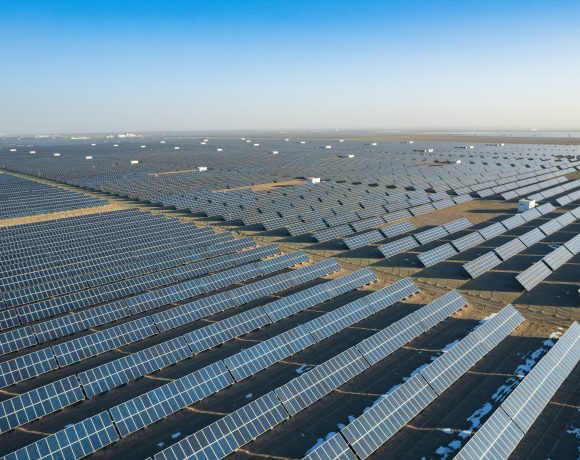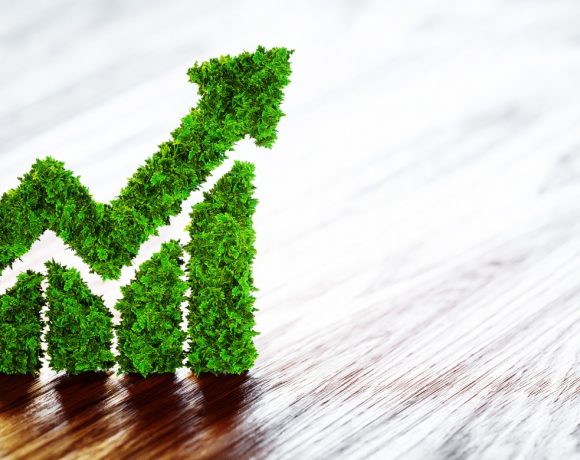- Singapore will launch a carbon trading marketplace in late 2021, backed by its state investment firm Temasek, the Singapore stock exchange, its largest bank DBS, and Standard Chartered Bank.
- The Climate Impact X (CIX) will draw heavily on satellite monitoring, artificial intelligence, big data, and blockchain to assure high-quality carbon credits. Talent in this domain is attracted by a global accelerator called “Sustaintech Xcelerator.”
- The carbon market is part of a more significant push by the Singapore government, businesses, and unions to help their economy recover from COVID-19 and position itself as a first-mover in the growth market sustainability.
The COVID-19 pandemic had us all stay in, offering nature some time to breathe. Videos of dolphins visiting Venice went viral. Sadly, the hope that our planet was in for a swift recovery was misleading – as was the belief in the dolphins’ visit, which turned out to be fake. As the UN Climate Change Agency reported six years after the conclusion of the Paris Agreement, governments are nowhere close to the level of ambition needed to limit carbon emissions and meet the goals of the Agreement.
For the Managing Director of the Monetary Authority of Singapore, Ravi Menon, the main culprit for the slow progress is the lack of «transition financing», a market failure to be corrected. The costs for the switch of Asia’s economies to a climate and environmentally friendly system are indeed substantive. Many countries still depend heavily on fossil fuels in their many forms. Singapore itself relies on natural gas for 95% of its energy needs, while coal makes up half of Asia’s energy supply, with China and some Southeast Asian nations still increasing their use. In May 2021 Mr. Menon presented his vision for the much-needed green transformation: establishing a global marketplace for carbon credits and positioning Singapore as the hub for carbon trading.
The carbon marketplace Climate Impact X
The Lion city’s voluntary carbon marketplace “Climate Impact X” (CIX) will launch at the end of 2021 in the form of a public-private partnership between the Development Bank of Singapore, Singapore Exchange, Standard Chartered Bank and Temasek Holdings. As an exchange focused on carbon credits, CIX will allow companies from all over the world to offset their carbon emissions by buying said credits from carbon-removing projects. Mikkel Larsen, Interim CEO of Climate Impact X and Chief Sustainability Officer at DBS, said: “Climate Impact X will provide a solution for corporations to address unavoidable carbon emissions in the short term and propel the development of new carbon credit projects worldwide. With an initial focus on Natural Climate Solutions, the carbon credits will also create impetus to address the grave risk of biodiversity loss and help serve local communities. CIX will build on collective action by global governments, corporates and individuals to achieve a net-zero economy.”
Overcoming trust issues through technology
Singapore carbon marketplace is by no means the first of its kind. Recently a world bank report showed that 64 carbon pricing instruments are now in operation worldwide, which covers over 20% of global greenhouse gas emissions. However, these impressive numbers hide the fact that the existing standards for carbon credits often face credibility problems, complete with cautionary tales. Here, the Lion city sees its distinguishing feature, which is that carbon credits – and the carbon removal project behind them – are set out to be verifiable and trusted. CIX plans on achieving this by deep tech and using artificial intelligence, big data, the blockchain, and satellites. What technology mix will be used and how they will be implemented is unclear, but Singapore is hard at work attracting innovative start-ups to help them. In June, the Sustaintech Xcelerator could already present its first cohort of projects, developing solutions that increase buyer and investor confidence in CIX.
Nature-based solutions as a key offering
Another feature that should distinguish Singapore’s carbon market is offering carbon credits created by Nature-based solutions (NBS). This means the credits traded on CIX will be based on projects that reduce or remove carbon through processes already found in nature. Examples include reforestation, restoring peatland, and – especially important in Southeast Asia – the restoration of mangroves. NbS are estimated to provide mitigation of 37% of carbon needed until 2030 in line with the Paris Agreements, according to a study published in Scientific Journal Proceedings of the National Academy of Sciences. But, despite the potential, currently, only around 3% of global climate financing goes to nature-based solutions. At least demand is rising. Hence, in the first quarter of 2021, Verra, one of the main certification bodies for voluntary carbon markets, reported that NbS represented 68% of its verified carbon units.
Never waste a good crisis
Singapore has long been noted as lagging when it comes to commitments on climate change –even today, there is no commitment to a net-zero future for the city state. Instead, the city has pledged to peak carbon emissions in 2030 and aspires to halve these peak emissions by 2050 “to achieve net-zero emissions as soon as viable in the second half of the century.” But now, climate change has been clearly recognised not just as a problem but an opportunity for Singapore. National Development Minister Demond Lee declared in parliament that COVID-19 “crystallised” the importance of sustainability and the demand for a green economy, which Singapore should see as an opportunity to establish itself as a first mover. Therefore, the plans for a carbon market did not fall out of the blue but are the results of a concerted effort known as Emerging Stronger Together by the government, unions, and businesses to boost economic recovery in a post-pandemic world. Their plans for a global carbon market play to the strengths of Singapore with a heavy focus on tech, the creation of high-skilled jobs, and harnessing synergies from the city-state’s position as a regional hub for commodities.
Singapore’s approach to innovation in the carbon space impresses with precise positioning, the use of public-private partnerships, and building knowledge through the attraction of talent. In doing so, Singapore frames climate change mainly as a market failure. The question arises: does this do justice to the complexity of the issue? It remains to be seen if Singapore’s new carbon market will take off and realise what it promises. Until then, I stay on the lookout for dolphins in the Canal Grande.






NO COMMENT